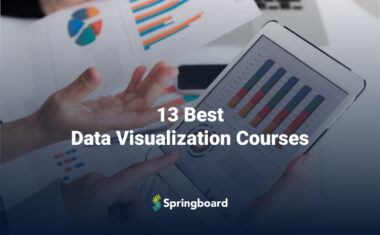How To Become a Data Analyst [2023 Roadmap]
![How To Become a Data Analyst [2023 Roadmap]](jpg/how-to-become-a-data-analyst-2023-roadmap-800x534.jpg)
In this article
Right now, the demand for data analysts has never been higher. In fact, according to the US Bureau of Labor Statistics, employment of data analysts is projected to jump 25% by the year 2030, meaning data analytics has one of the highest growth rates in the country.
But how do you become a data analyst? What kind of experience and educational background do you need? And what are some of the common skills data analysts possess?
In this guide, we are going to cover everything you need to know to become a successful data analyst, including where to start, the specific steps you need to take, and the relevant skills you should learn along the way.
Is It Hard To Become a Data Analyst?
Becoming a data analyst isn’t hard per se, though it does require certain technical skills that might be more challenging for some than others. Additionally, because of continuing advancements in the field, data analysis is a career path that requires ongoing education.
How To Become a Data Analyst
Follow these steps to land your first job as a data analyst:
-
Understand Data Analytics Fundamentals
-
Meet the Educational Requirements
-
Pick Up an Essential Programming Language (or All)
-
Get Familiar With Data Analytics Tools
-
Develop Your Skillset
-
Pursue Volunteer, Open-Source, or Freelance Projects To Build Your Portfolio
-
Build Your Network
-
Find a Mentor
-
Consider a Data Analytics Internship
-
Polish Your Resume, Prep for Interviews, and Start Applying
Understand Data Analytics Fundamentals
The first step of your journey is making sure you have a firm grasp of the fundamentals. You want to make sure you understand the key principles of data analytics, the different types of data analysis, and the tools that data analysts use.
Meet the Educational Requirements
Data analysts spend a lot of time working with numbers. Because of this, many employers look for candidates with bachelor’s degrees in mathematics, statistics, computer science, or a related field.
However, you don’t necessarily need a formal degree to become a data analyst. In fact, companies often hire candidates who have completed an online course in data analytics, or a data analytics bootcamp, or can demonstrate the requisite technical knowledge and skills.
Pick Up an Essential Programming Language (or All)
Not all data analysts need to know how to code. In fact, at the start of your career, a cursory familiarity with the more popular querying languages should suffice. However, if you really want to become the best (most employable) data analyst you can be, consider learning one – or more – of the essential programming languages (i.e., Python, R, SQL).
Get Familiar With Data Analytics Tools
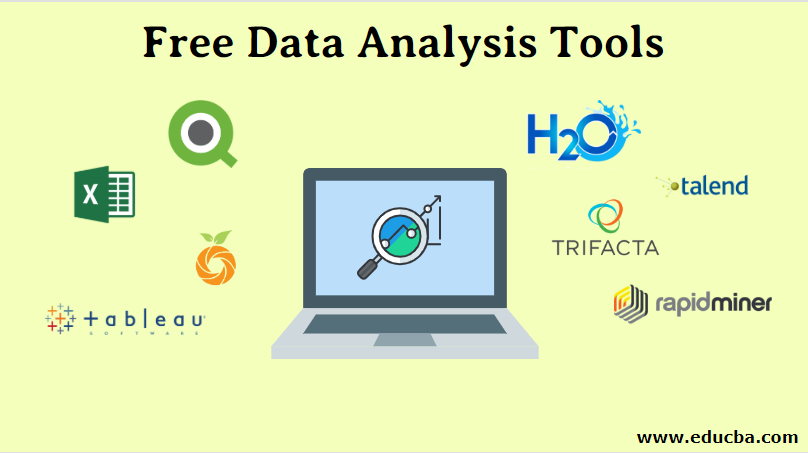
Data analysts use a wide variety of tools and applications to collect, manipulate, and analyze data. You should familiarize yourself with the most used analysis tools, including:
Tableau
A popular data visualization tool used to perform data analysis, manipulation, and visualization
Microsoft Excel
A well-known spreadsheet application commonly used by data analysts
Microsoft Power BI
A free data visualization and business insight tool ideal for collaboration
Google Analytics
A web-based analytics tool used to track website traffic
Jupyter Notebook
An open-sourced web application that enables exploratory analysis using “big data” tools (e.g., Python, R, and Scala)
Develop Your Skillset
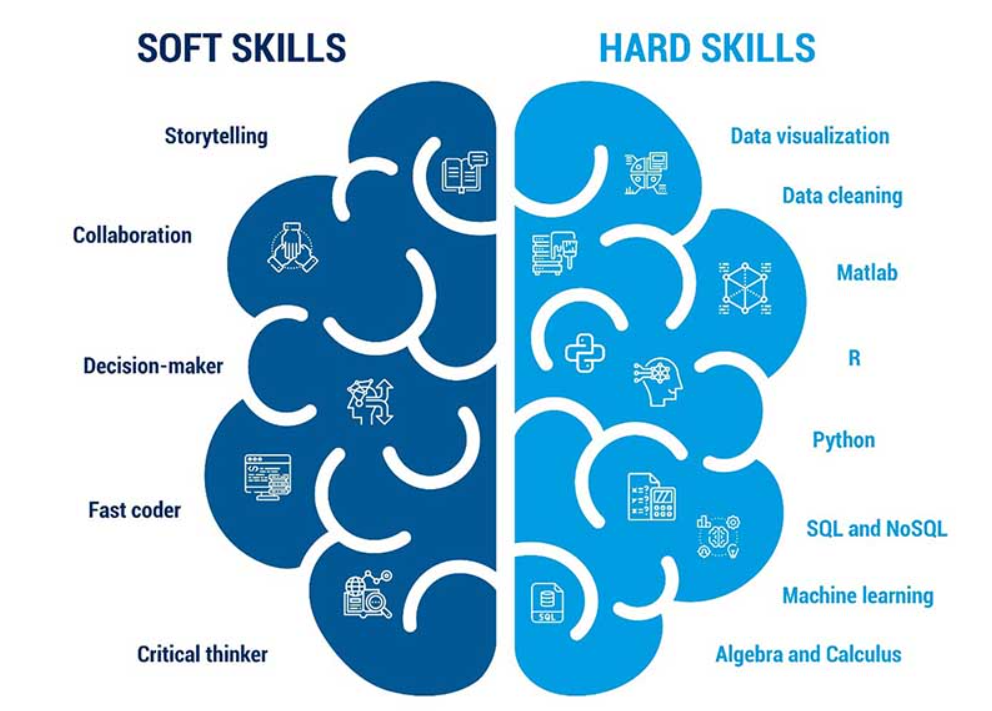
Having the right skillset is paramount to your becoming a data analyst. Make sure you’ve developed the following hard skills and soft skills:
Technical Skills
Statistical analysis and math skills
Data analysts work with numbers. A lot. Data analysts should have strong math skills and be comfortable analyzing data sets.
Programming and querying languages
In order to process data and make it understandable for others, analysts use various programming and querying languages, such as Python and R. As a data analyst, you probably won’t have to build many programs, but being familiar with the commonly used languages and understanding how they function is essential.
Microsoft Excel
MS Excel is a go-to tool for data analysts. It’s widely available, easy to use, and has a ton of useful features.
Related Read: Excel Interview Questions for Data Analysts
Data visualization
If the insights derived from your analysis are incomprehensible, what is their value? A good data analyst can produce meaningful insights and present those findings visually in their most understandable form.
Machine learning
One of the unofficial differences between data analysts and data scientists is that data scientists use machine learning to design new processes for data modeling. As a data analyst, you likely won’t have to do that. However, in order to work with data scientists effectively, you will need to be familiar with these processes and understand how they work.
Soft Skills
Analytical thinking
Data analysis involves collecting raw data and refining it into meaningful information. Once the data has been refined, analysts analyze it to uncover some deeper truth and value. This can only be done through analytical thinking.
Problem-solving skills
Well-developed problem-solving skills help data analysts recognize the nature of the problem before them, what the best analytical tools and techniques are to solve the problem, and the solution to the problem itself.
Presentation skills
Data analysts need to effectively present their insights in a way that everyone—especially non-technical stakeholders—can understand. Strong presentation skills will enable you to convey your findings and predictions in a compelling manner that your audience will care about.
Communication and interpersonal skills
Data analysts rarely work in a bubble. In fact, as an analyst, you’ll likely interact with a variety of different people, including colleagues and coworkers, managers, and subject matter experts. Having strong communication and interpersonal skills will help facilitate collaboration among different parties.
Get To Know Other Data Analytics Students
Yogita Nesargi
Data Engineer at Deloitte
Nelson Borges
Insights Analyst at LinkedIn
Jon Shepard
VP Of AI Research Strategy And Execution at J.P. Morgan
Pursue Volunteer, Open-Source, or Freelance Projects To Build Your Portfolio

Building a strong portfolio is one of the best and most surefire ways to demonstrate your analytical skillset. Pursue volunteer opportunities, find freelance work, or work on a personal project to highlight your analytical knowledge.
If you are thinking about showcasing a personal project in your portfolio but don’t have one readily available and you’re not sure where to start, consider using a publicly available data set. You can find all kinds of datasets on sites like Data.gov and Datahub.io.
Finding a dataset that covers a topic you are already interested in is helpful. But more importantly, choose data that can best be analyzed by the methods you are most proficient with—this will allow you to showcase your strengths to their fullest potential.
In addition to personal projects, you will also want to fill your portfolio with projects that demonstrate your analytical skillset and showcase your ability to tackle real-world problems as part of a team.
That’s where volunteer work and freelance projects come in. Look for opportunities that will allow you to collaborate with others while working on the different phases of the data analysis life cycle. Not only will this experience make a good impression on potential employers, but it will also help strengthen the skills you need to be a successful data analyst.
Build Your Network
Good networking can help you get your foot in the door, develop valuable relationships with experienced professionals, find a mentor, and more. Consider these resources to start building your professional network today:
The well-known social networking service for professionals makes it easy to find and connect with data analysts and other like-minded individuals.
Online Communities
Online communities aren’t just great for meeting people with similar interests. They are also a great source of support and useful information.
Conferences and Meet-Ups
Attending a data analyst conference or meet-up will allow you to network in person, which is a great way to make lasting impressions that could benefit you down the road.
Find a Mentor

No matter your profession, a mentor can provide guidance and feedback to help you achieve your career goals. Through them, you can learn lots of valuable insights, including how other analysts started out, the different career paths an analyst can take, as well as the pros and cons of those varying paths. As a mentee, you will benefit from your mentor’s learn real-life experience and gain actionable insights you can use to chart your ideal career path.
One way to find a good mentor is to use your professional network. Reach out to contacts to let them know you are looking for an experienced data analyst to become your mentor. Use professional networking platforms like LinkedIn to potential mentors and approach them about a mentorship.
Before you reach out to someone about becoming your mentor, be sure to have a specific goal in mind. Be prepared with detailed questions and answers to potential questions, as well. Your potential mentor will likely ask questions about your personal and professional life, including what your career goals are, where you would like to be, and why you want them to mentor you.
It is also a good idea to come up with a plan or structure for how you imagine your mentorship would work. You should be clear from the beginning about how much time you would like to spend with your mentor, the type of guidance you are looking for, and so on. Establishing what you are looking for early on is crucial if you want to get the most out of your mentorship as possible.
Consider a Data Analytics Internship

Landing an internship as a data analyst is arguably one of the best ways to break into the industry. As an intern, you’ll work on real-world projects, further develop your analytical skills, and gain valuable insights into the world of data analytics. Internships also provide excellent networking opportunities. Internships also give aspiring analysts the kind of hands-on experience that looks great on a resume.
Polish Your Resume, Prep for Interviews, and Start Applying
Now that you’ve honed your skillset and compiled a professional portfolio, it’s time to start your application prep. Talk to your mentor: have them sign off on your portfolio and help you with interview prep. Tap into your network for job leads and begin applying for entry-level data analyst jobs.
How Much Can You Make as a Data Analyst?
As with most professions, salaries vary based on several factors, including geographic location, relevant work experience, etc. That being said, here are the current national averages for data analyst salaries:
Entry-Level Data Analyst
Currently, the average base salary for entry-level data analyst job postings in the US is $47,669 per year.
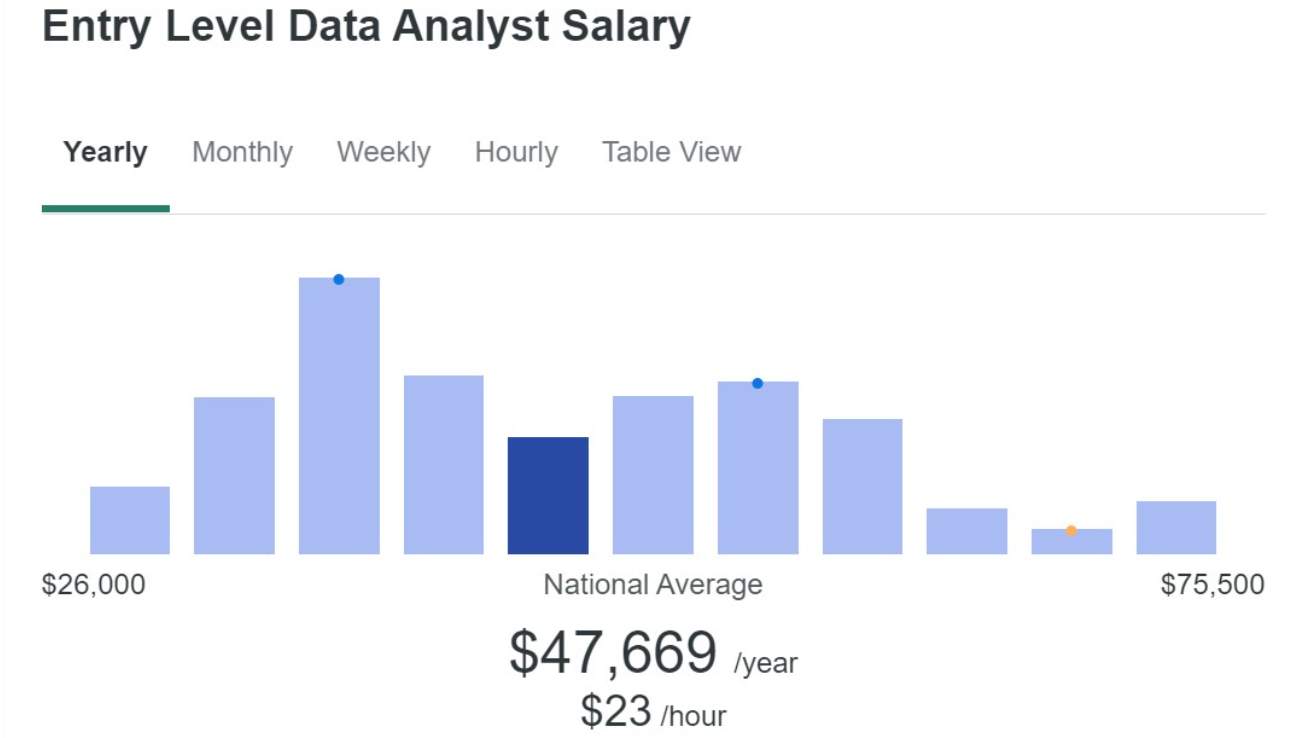
Mid-Level Data Analyst
Job opportunities for mid-level data analysts include an annual salary of $69,343 per year.
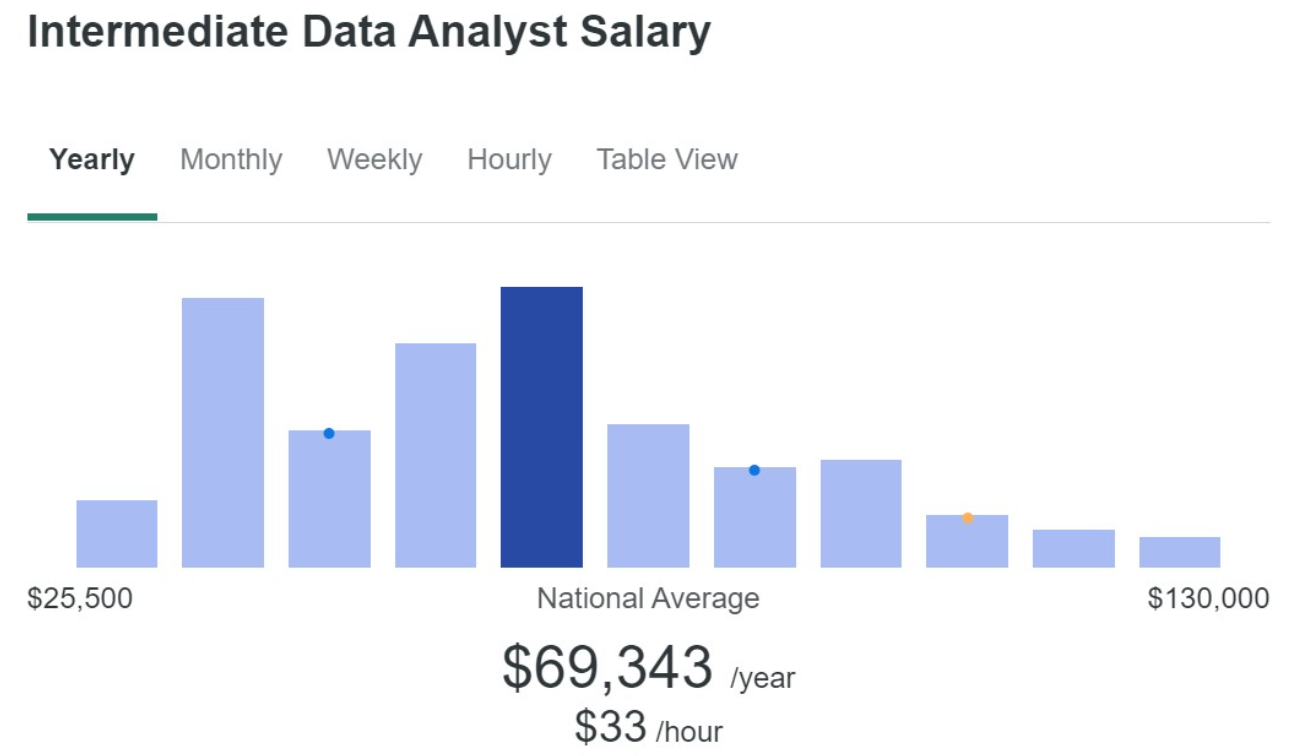
Senior Data Analyst
The average salary for a senior data analyst is around $102,820 per year.
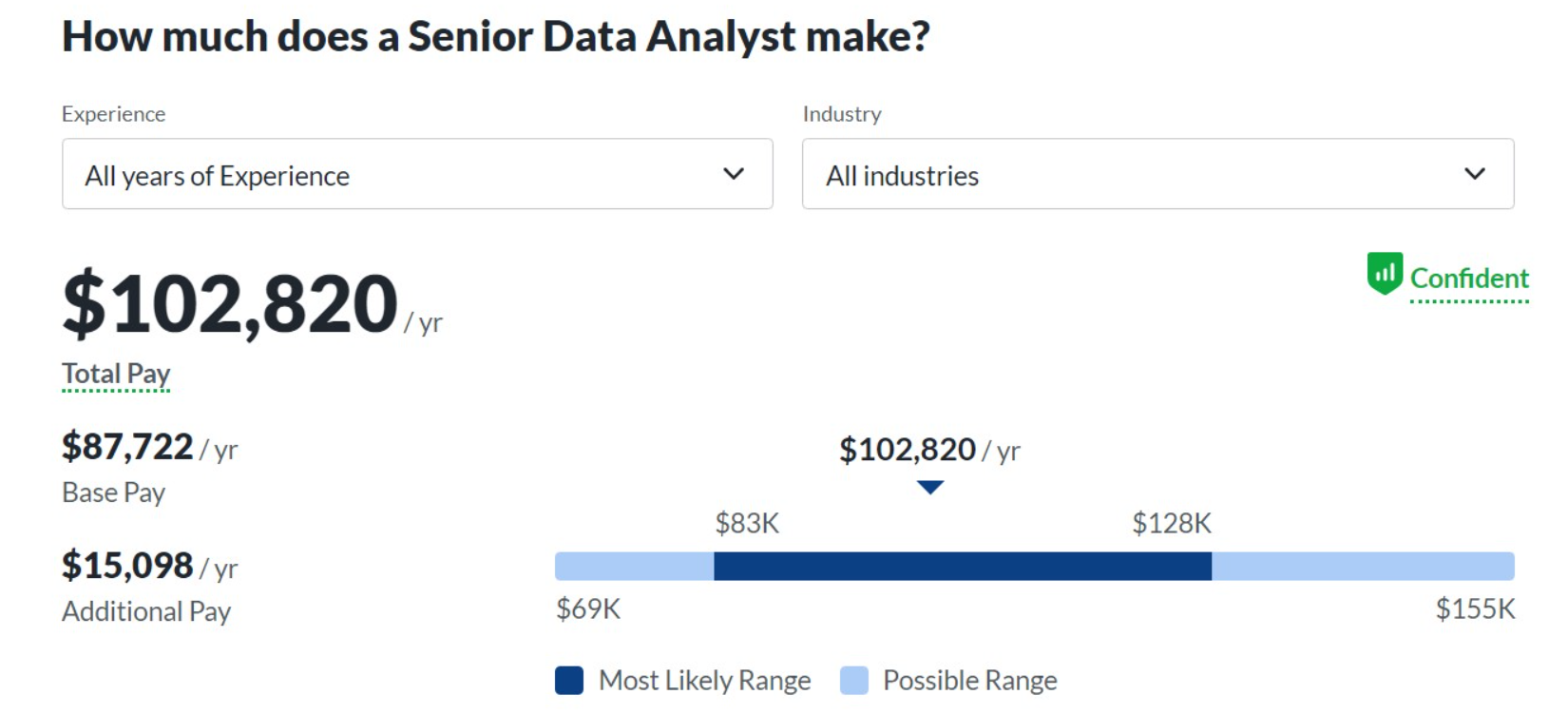
Becoming a Data Analyst: Examples To Learn From
Curious to see how others began their career as data analysts? Check out the following videos for an inside look at how two successful analysts made the leap into the data analytics field:
Data Analyst Career Switch | How I Became a Data Analyst
In this video, Wale shares how he pivoted from being an engineer to a data analyst without going back to school.
How I Became a Data Analyst (Without a Related Degree)
Want to learn how to become a freelance data analyst without a degree? Then this video is for you.
FAQs About Data Analysts
We’ve got the answers to your most frequently asked questions:
Can I Become a Data Analyst Without a Degree?
Yes. Though some job listings for data analyst positions do list a bachelor’s degree as a prerequisite, it’s very possible to become a data analyst without a degree. For instance, in lieu of advanced degrees, many companies hire data analytics bootcamp graduates.
Can You Learn Data Analytics on Your Own?
Yes! But it’s not for the faint of heart. A structured learning plan taught by a skilled instructor is the easiest path to take—something you’ll realize the first time you run into a problem you can’t solve on your own.
That doesn’t mean you have to enroll in an undergraduate program or earn your bachelor’s degree to become a data analyst. Online courses and data analytics bootcamps can provide you with the structure, support, and skillset you need to become a skilled data analyst. A good program will also provide you with a mentor and plenty of career resources to help you find job opportunities once you graduate.
Does Data Analytics Require Coding?
Coding is not a required skill for most data analysts, though having a surface-level familiarity and understanding of common languages is recommended. The most common programming and querying languages include Python, R, and SQL.
Is Data Analytics Math-Heavy?
Yes. And while you don’t necessarily need a degree in mathematics to become a data analyst, you will need to be familiar with some key areas and concepts. The most common types of math you’re likely to encounter as a data analyst include linear algebra, probability, calculus, and statistics.
Since you’re here…
Switching to a career in data analytics is possible, no matter your background. We’ve helped over 10,000 students make it happen. Check out our free data analytics curriculum to gauge your interest, or go all-in with our Data Analytics Bootcamp.







